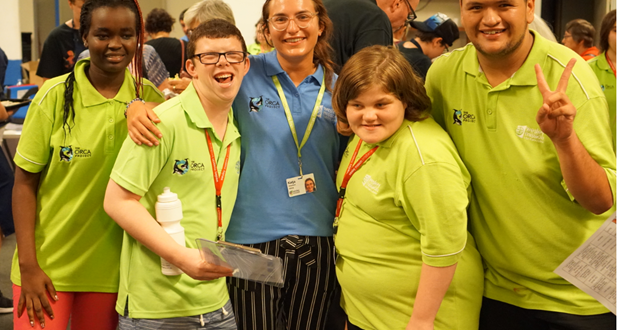Rev Alison Cox is the Project Officer – Disability Inclusion Innovation with Wesley Mission Queensland. On International Day for People with Disabilities, she reflects on the role of the church in creating communities where all are recognised and accepted as beloved and worthy creations of God.
Language is such a challenging part of life. It is vitally important, and yet always changing.
If you consider how our labels have changed over the years when we talk about people living with different abilities it is astounding to consider how far we have travelled.
The most important thing in my mind is recognising in our current turn of phrase that it is the people or person who comes first. No longer is someone known as the autistic boy, or epileptic or whatever the disability might be. We recognise the person as the most important … they are someone who lives with autism or epilepsy or whatever it might be. And that language may well change again in the next 20 years.
But perhaps the greatest call is to look beyond the words and the labels. To focus on the person themselves and see and recognise them as someone of true and great worth. Someone who lives and engages with life, who has likes and dislikes, has their own interests and most importantly, their own strengths and abilities.
As a church we are challenged to lead the way and set examples for the rest of the community.
All too often we set people up to fail.
Consider your own life.
Your workplace—your church—your home.
Is it accessible for someone with extra needs?
Are people living with different abilities included and embraced, and necessary adjustments made, or are they excluded because they don’t fit the expectations around what is acceptable and necessary in order to be present?
In the church there is sometimes an emphasis on healing and wholeness, without consideration of what that actually means or how it impacts someone living with disabilities.
If the message is that God’s desire is for wholeness and healing, are we willing to see that the healing might be something that our community needs, instead of being rid of the disability or challenge?
Somehow the goal of “perfection” seems to pervade a space where we know that in reality none of us can ever achieve that goal.
Jesus embraced “brokenness” like no one else. He spent more time with those who were marginalised than anyone else in his ministry.
I truly believe that God’s message is clear. “I made you, I love you, and who you are is more than enough for me.”
As we strive for more in life, may we strive to be open to God healing our own heart—recognising that this might mean we need to change our traditions, experiences and expectations so that we can welcome and embrace and celebrate each person we encounter as someone who is whole, and not see them as somehow broken and in need of fixing.
 JourneyOnline
JourneyOnline







